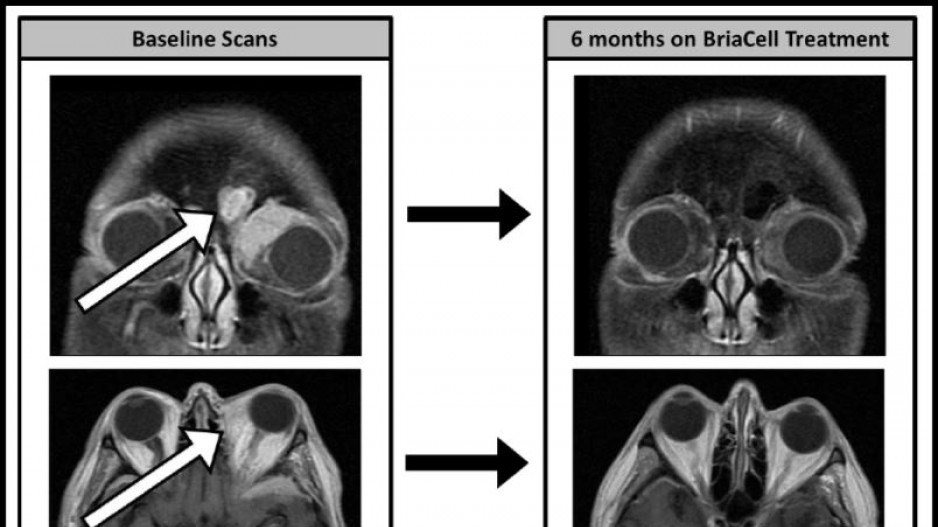BriaCell Therapeutics Corp. (TSX:BCT, Nasdaq: BCTX), a Vancouver-Philadelphia oncology immunotherapeutics company, is reporting what it calls a “remarkable” response to treatment using a new cancer drug candidate in Phase 2 clinical trials.
The company reports that a patient being treated in Phase 2 clinical trials with BriaCell’s Bria-IMT combination regimen has “extensive metastatic breast cancer," which had spread to the patient's eye, where a tumour was causing the eye to bulge (proptosis) and caused significant pain.
BriaCell reports that all other available therapies had failed to address the problem.
But after she was treated with Bria-IMT, the patient experienced “a remarkable improvement of proptosis caused by breast cancer tumors behind the eye, resulting in significant pain reduction in the ocular region,” BriaCell said in a press release.
BriaCell reports the positive response occurred after three cycles of treatment with Bria-IMT, starting on Oct. 4, 2023.
“Responses like this are not often seen in heavily pretreated patients and are especially rare in metastatic disease to the eye,” said Carmen Calfa, clinical research lead for the breast site disease group at the University of Miami Miller School of Medicine, and principal clinical investigator for the Bria-IMT Phase 2.
BriaCell said the latest result was the second time a patient with proptosis responded positively to Bria-IMT.
“BriaCell had previously reported a similar case of a remarkable response with 100 per cent resolution of an eye-bulging orbital tumor,” the company said in its press release.
“We are reporting remarkable clinical responses in patients who were previously thought untreatable, suggesting effectiveness in difficult-to-reach tumors such as those in the bones and the brain,” said BriaCell CEO William V. Williams.
“We hypothesize that our Bria-IMT regimen may cross the blood brain barrier to treat these difficult-to-reach areas, such as the brain, which continues to increase our excitement for our novel cancer immunotherapy.
"We have seen several patients with central nervous system metastases respond to our therapy and are looking forward to further investigating this unique observation in our pivotal Phase 3 study of Bria-IMT combination therapy in advanced metastatic breast cancer.”



